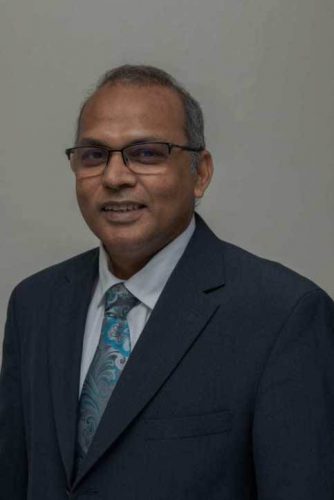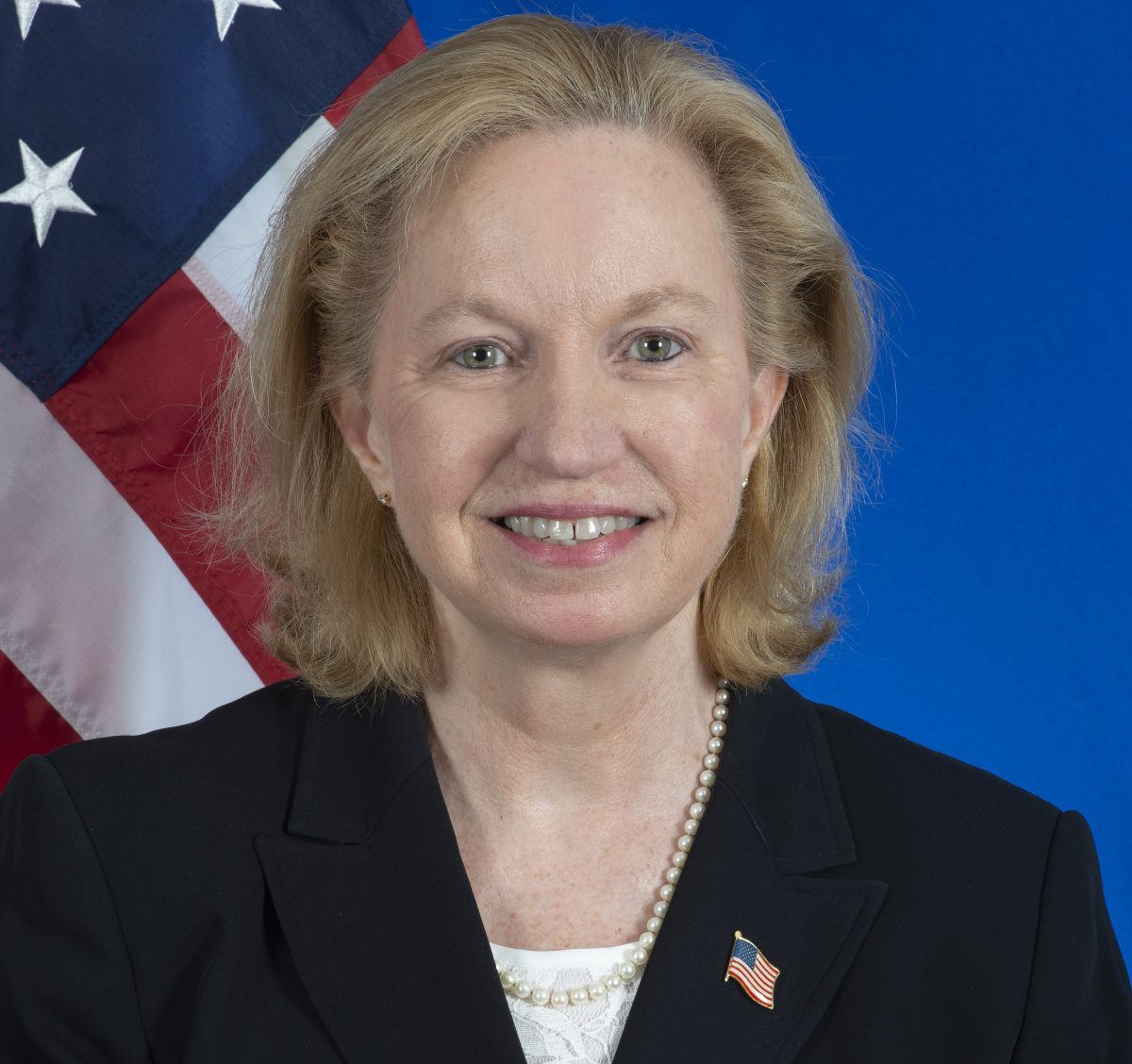The United States yesterday presented a US$1.5 million grant to the Ministry of Health, which will among other things aim to have more HIV+ positive persons in treatment and their viral levels kept low.
The presentation was made under the President’s Emergency Plan for AIDS Relief (PEPFAR), a long-running US programme which has provided extensive aid to Guyana to combat the Human Immunodeficiency Virus (HIV).
Health Minister Dr Frank Anthony said that the $300 million grant will go towards a number of initiatives, including making pre-exposure prophylaxis (PrEP) available to all Guyanese who have been exposed to the virus.

US Ambassador Sarah-Ann Lynch during her remarks at the event, held at the Care and Treatment Facility on Thomas Street, Georgetown, stated that Guyana has been the beneficiary of more than US$185 million from the US through PEPFAR to support HIV prevention, testing, care and treatment services.
“We are thrilled to be able to provide an additional (US) $1.5 million to support the fight against HIV in Guyana. This funding will support the Ministry of Health (MoH) and civil society partners through September 2022. It is especially timely given COVID-19 and the strain it continues to place on the country’s health system,” she said, while noting that Guyana has made significant strides in its fight against HIV with more than 90% persons living with HIV in the country knowing their status.
She added that such knowledge is critical as it allows individuals to be connected with life-saving HIV treatment, which allows their health to be sustained, and the levels of virus can be reduced so low that it cannot be transmitted to others.
Despite this, she said it is important to note that of every four individuals diagnosed, only three are on treatment. “This is not enough – and lives are at stake. Therefore, our priority must be to increase treatment coverage, aiming to ensure that everyone diagnosed with HIV is immediately linked to life-saving treatment services. We believe strongly that services must be client-centred, meeting individuals where they are, with what they need. Our PEPFAR support will help strengthen this, including for the most vulnerable,” she said.
Lynch added that Guyana has been a regional leader in using global best practices and policies to guide its HIV response and the recent adoption of a national HIV self-testing strategy is a welcome move, as it will allow individuals another option to learn their status and enable safe, effective testing in the privacy of one’s home, especially considering that the COVID-19 pandemic is still ongoing.
Thankful
Anthony said that Guyana is thankful for the partnership with the US and noted that in earlier years the fight against HIV was very dismal as there were limited test kits and antiretroviral drugs (ARVs) available in the country. However, Guyana entered into discussions with the US, which resulted in the construction of the treatment and care facility also known as the National Public Health Reference Laboratory (NPHRL). HIV testing as well as, malaria, tuberculosis, COVID-19 and Hepatitis B testing is also done at the lab.
Anthony recalled that since the partnership was developed they have been able to embark on a number of strategies to aid in the fight against HIV. This includes voluntary testing and counselling across the country, provision of treatment to those infected, and the training of physicians to treat HIV among several others. He noted that through the partnership they were also able to develop treatment and care guidelines with the help of doctors from the US and ensure that all donated blood in the blood bank is safe and free of HIV.
He noted that they are working towards achieving the UNAIDS’ 90-90-90 treatment for all targets.
According to UNAIDS, it was established that by 2020, 90% of all people living with HIV will know their HIV status, 90% of all people with diagnosed HIV infection will receive sustained antiretroviral therapy and 90% of all people receiving antiretroviral therapy will have viral suppression.
Anthony acknowledged that Guyana was unable to achieve some of those targets but regarding testing some 92% were tested and 90% were able to know their status. However, regarding the two remaining targets, he said, only 74% of infected patients were receiving treatment with only 69% virally suppressed. With those statistics he said it is clear that much more work needs to be done in the country hence the importance of the PEPFAR grant.
“It will help us to focus on all three of these 90s and if we can, we will aspire to get to 95,” he said. He revealed that with the grant, they will continue to do more testing and with the introductory of self-testing strategies last year, these projects will be rolled out this year.
He added that they will also be implementing projects that will ensure more people who are infected get the requisite treatment so that they can be virally suppressed and reduce mother-to-child transmission of HIV. He noted that there are quite a few cases of mother-to-child transmission and they are looking to completely eliminate these cases with the introduction of the dried blood testing.
In addition, he said, the government is looking to acquire more PrEP so that anyone who thinks they are at risk can access this drug at any facility once they meet the eligibility criteria. He noted that PrEP is quite limited in the country and they want to ensure that this is no longer the case. He revealed that they are hoping to acquire both types of PrEP treatment.
He also said that stigmatization and awareness outreaches are key programmes for this year.
“We see these as essential elements in this programme so that we can really move treatment and care for HIV patients to a (high level) so with the extension of this grant this is really going to help us transition over to ensure that we tackle all the elements and will ensure we target the programmes in such a way that we achieve all our goals,” he said before thanking the Ambassador for the work she put in to ensure that this was possible.





